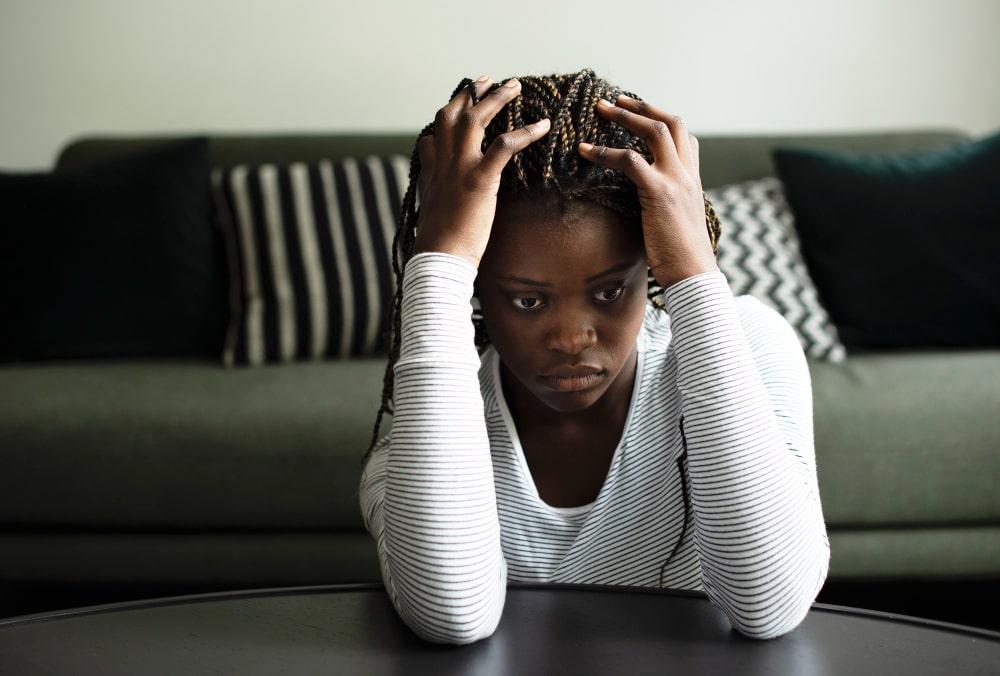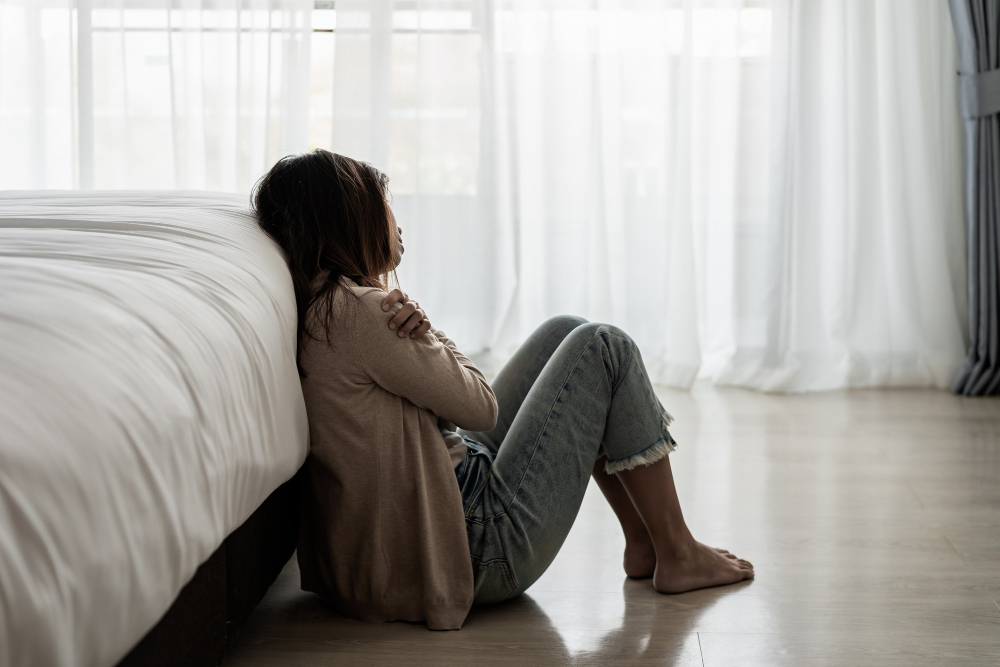Depression: Types, Symptoms, and Treatment Options
Understanding Depression: A Broad Overview
Depression, clinically known as Major Depressive Disorder, is a common yet severe mental health condition. It manifests through persistent feelings of sadness, loss of interest in activities, and a profound sense of despair. It’s not merely a passing mood but a complex interplay of biological, genetic, and environmental factors. It’s a serious mental health condition that calls for knowledge and treatment. Depression can cause severe symptoms that affect how you feel, think, and handle daily activities such as sleeping, eating, or working. It’s important to remember that help is available and treatment can lead to a better quality of life. Depression remains one of the most debilitating mental health conditions, adversely affecting millions worldwide. At our psychiatry clinic, we extend our comprehensive understanding, empathetic support, and leading-edge treatments to help manage this condition.


Clinical Categories of Depression
Depression comes in many forms, each with its unique set of symptoms and treatment options. Here are the most common types:
Major Depressive Disorder (MDD)
This is what most people think of when they hear “depression.” MDD causes feelings of sadness, loss, anger, or frustration that interfere with daily life for weeks or longer.
Persistent Depressive Disorder (Dysthymia)
This type of depression lasts for at least two years and can make it difficult to function at work or school, or in social situations.
Bipolar Disorder
Although not strictly a form of depression, people with bipolar disorder also experience episodes of extremely low moods that meet the criteria for major depression.
Seasonal Affective Disorder (SAD)
This type of depression is related to changes in seasons, typically starting in late fall and early winter and going away during the spring and summer.
Psychotic Depression
When someone has both severe depression and a sort of psychosis, such as having disturbing false beliefs or a break from reality, this happens.
Symptoms That Define Depression
Symptoms of depression may vary among individuals, but several commonalities make it identifiable. Below is a comprehensive list of symptoms:
- Feeling sad or having a depressed mood
- Loss of interest or pleasure in activities once enjoyed
- Changes in appetite; weight loss or gain unrelated to dieting
- Trouble sleeping or sleeping too much (Insomnia or hypersomnia)
- Loss of energy or increased fatigue
- Feeling worthless or guilty
- Difficulty thinking, concentrating, or making decisions
- Thoughts of death or suicide


Causes Behind the Condition
Depression arises from the complex interplay of biological, genetic, and environmental factors. While the exact cause remains unclear, numerous contributing factors have been identified:
Genetics
Depression can run in families, suggesting a genetic link.
Brain Structure and Function
Differences in the brain’s structure or neurotransmitter function can predispose individuals to depression.
Hormonal Changes
Shifts in hormonal balance, especially during pregnancy or menopause, can trigger depressive episodes.
Environmental Factors
Certain life events or stressors, such as loss, trauma, or financial problems, can induce depressive symptoms.
Depression Treatment Options
Even the most severe symptoms of depression are treatable. Treatment is more successful the earlier it is started. Psychotherapy, medication, and dietary changes are frequently used in the treatment of depression.
Psychiatry for Depression
Psychiatrists are medical doctors who specialize in diagnosing and treating mental illnesses. They can provide a wide range of treatments, including medications, psychotherapy, and brain stimulation therapies.
Depression Medication
Antidepressants are medicines that treat depression. They can help improve the way your brain uses certain chemicals that control mood or stress.
Ketamine for Depression
Ketamine is a powerful anesthetic used in hospitals and clinics. In smaller doses, it can help treat severe depression and suicidal thoughts.
Spravato Esketamine Nasal Spray
This is a prescription medicine, used along with an antidepressant taken by mouth, for treatment-resistant depression in adults.
TMS for Depression
Transcranial magnetic stimulation (TMS) is a non-invasive method that employs magnetic fields to activate nerve cells in the brain to alleviate depression symptoms.
Depression Therapy
Some examples of talking therapies include cognitive-behavioral therapy (CBT), interpersonal therapy (IPT), and problem-solving therapy, though there are many other types as well.
Online Depression Treatment
Online therapy can be a useful option for those who can’t leave their homes or live far from mental health facilities.
The Role of Comprehensive Support in Managing Depression
Depression is not a personal failure but a legitimate health condition requiring professional intervention. At Atlantis psychiatry clinic, we offer comprehensive treatment options tailored to each patient’s individual needs. We foster an environment of understanding, compassion, and professional expertise to effectively combat depression and guide our patients towards a more fulfilling, happier life. Understanding depression is the first step towards managing this condition. Armed with the right information and professional help, overcoming depression is not only possible but also a realistic goal for many individuals.
Depression Treatment in & Near Indian Harbour Beach, FL
Depression is a complex disorder, but it’s treatable. With a variety of treatment options available, from medication to therapy, there’s hope for every individual facing this condition. If you or someone you know is struggling with depression, reach out to us at Atlantis Integrative Medicine & Psychiatry Wellness Center. Remember, it’s okay to ask for help, and there are resources available for depression treatment in and near Indian Harbour Beach, FL.
Frequently Asked Questions
The first sign of depression varies among individuals but often includes feelings of sadness, loss of interest in activities, and a lack of energy.
Depression is diagnosed using a patient interview, physical examination, and sometimes a mental health assessment by a psychiatrist or psychologist.
While there’s no “cure” for depression, it’s more treatable than it ever has been. With the right combination of medication, therapy, lifestyle changes, and support, most people with depression can lead full and productive lives with remission from depression.
The best treatment for depression varies from person to person and can include medication, therapy, lifestyle changes, or a combination of these. It’s important to discuss with a healthcare provider to determine the best treatment plan.
Depression can be considered a disability if it has a significant impact on a person’s ability to function in daily life.
Yes, untreated depression can lead to a variety of physical and mental health problems. It can increase the risk of substance abuse, anxiety disorders, heart disease, and suicide.
Quick Links
Contact
- Phone: (320) 347-3329
- Email: info@atlantiswellnesscenters.com
- Address: 2194 A1A HWY Unit 203 Indian Harbor Beach, FL 32937
© 2024 Atlantis Integrative Medicine & Psychiatry Wellness Center, PLLC.


